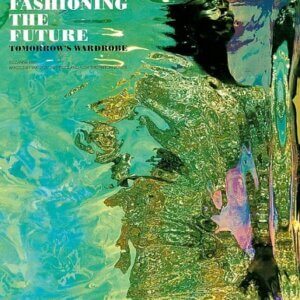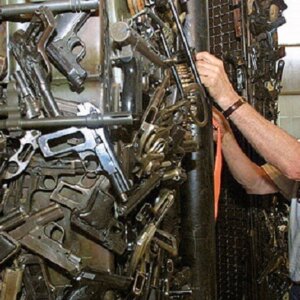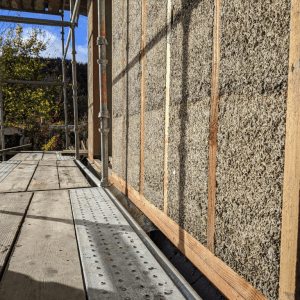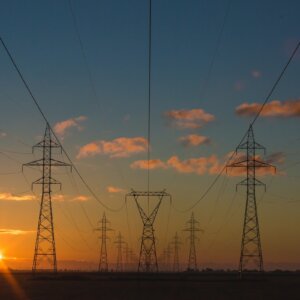There are many ways in which entrepreneurs and ecopreneurs are similar. Both embrace failure and are idea-driven, innovative, creative, risk tolerant, flexible, adaptable, freedom-minded and independent. Perhaps you could add a few more defining characteristics as well.
However, ecopreneurs go beyond organic, beyond compliance to laws and regulations (or redefine them), beyond consumerism, beyond minimum wages and beyond the free market economy to conduct business. Entrepreneurs become ecopreneurs when their spirit, boldness, courage and determination not only transform the landscape but coalescence into a movement to transform global problems into opportunities for restoration and healing.
After talking with thousands of ecopreneurs over the past decade, we’ve discovered quite a few distinguishing characteristics reflected in the chart to the right. Additionally, ecopreneurs seem to be more focused on cooperation and collaboration than competition as the means to get ahead in the world. That’s why so many form innovative partnerships or creative interdependencies with fellow ecopreneurs — just as in nature.
The most progressive ecopreneurial enterprises address more than one of the many challenges facing us. Their business might foster fair trade relationships (promoting economic justice and equity), generate more energy from renewable energy sources than it uses (severing our addiction to fossil fuels) and even serve local, seasonal, vegetarian, and organic meals to those who work in the business.
Ecopreneurs take a penchant for innovation and problem-solving, applying it to meaningful purpose. Ecopreneurs emblazen the re-greening of Earth, restoring degraded land, cleaning the air, building healthy and safe homes, devising clean, renewable energy sources, offering prevention oriented alternatives to treatment focused healthcare and helping preserve or restore the ecological and cultural wonders of the planet by changing the way we experience travel, just to name a few. While entrepreneurs make their money work for them through the businesses they create, or assets they accumulate, ecopreneurs use their businesses to implement their Earth Mission. If you’re earning a living now, perhaps working for a company or organization, then becoming an ecopreneur will revolutionize how you think about money, your livelihood, your life.
While many entrepreneurs may be motivated, at least in part, to the mantra of “greed is great” on their journey to becoming a millionaire, growing numbers of ecopreneurs are adopting a different course, focusing on solving the problems facing society through the businesses they create, greening their bottom line. Many are redefining their wealth, as we have, not by the size of their bank account or square footage of their home. Wealth is defined by life’s tangibles: health, wellness, meaningful work, vibrant community life and family.
In the end, ecopreneurs are all about making a difference for the planet, fellow citizens, and our community. As we write about in ECOpreneuring, ecopreneurs generate revenues to run their business based on their passion to make the world a better place. Not, as the late Milton Friedman expounded: to make profits for a relatively few shareholders.










































Great post. Thank you. Today, we looked at this issue:
Ethical Quandry: Organizations and Environmental v. Economic Sustainability
How does this fit into the two profiles your discussing? I would assume that it starts here: “Ecopreneurs take a penchant for innovation and problem-solving…”
I tried a few times to write a response, but each time stopped myself because I wasn’t expressing my true feelings about this post.
Quite simply, this is a mean-spirited generalization, whose only purpose seems to be to impugn the motivations of all those who undertake – the literal translation of the word entrepreneur – to try things new and different.
The behaviors and aspirations you list for entrepreneurs and “ecopreneurs” are all inherently part of the human mosaic – I’ve seen most all of them exhibited by the same person over the course of single day, for goodness sake!
Shame on you for demeaning entrepreneurs – people who have done much for humanity, society and the environment – for the purpose of selling a book. Your methods would make Karl Rove proud.
Thanks for your comments, Nick. As the other co-author of ECOpreneuring, let me chime in here – I don’t think my writing or business philosophy has every been put in the same context as Karl Rove before (I, for the record, have more hair).
I most heartily agree with your point that entrepreneurs historically have led the way to try something “new and different” – the time is ripe right now to do exactly that within the business context. Our old models based on profit and growth no longer work – our environmental ship is sinking, or at least has sprung a major leak – and we desperately need new vision. I draw deep inspiration from the growing number of ecopreneurs I’ve met who start with this traditional entrepreneurial spirit of innovation yet take it further, looking not just at a bottom line but a triple bottom line perspective. I’m also moved by the tremendous collaborative spirit amongst today’s ecopreneurs. As evidenced by the dialogue on this site and throughout the Green Options portal, ecopreneurs thrive in a community of collaboration and support – not competitiveness and greed.
One more point on the ecopreneur definition: this is not a finite, tangible end goal. Ecopreneurs, at least from my perspective, are never “done” – we are constantly evolving, learning, sharing, improving. Likewise, ecopreneurs don’t see themselves as “better” in a holier than thou, purist, forgive me Obama – elitist fashion. This isn’t an “us” against “them” battle – ecopreneurs are rather choosing a different path entirely, changing the way we do business and as a result, hopefully, changing our world for the better. Our mission in writing and getting the word out about ECOpreneuring is to help widen that path and help others launch their green business dream.
I’m curious to hear other perspectives – can ecopreneurs build on traditional entrepreneurial philosophies, cracking the status quo for real change?
Lisa Kivirist
Thanks for your comments, Alex and Nick.
We believe we need to change the ECOnomic “story” that so many are following — for Earth’s sake.
We’re reaching a point where the “More, Bigger, Faster” mode of commerce — often at complete odds with social and ecological impacts — must change. It is changing, by ecopreneurs who are determined NOT to destroy the planet or exploit people in the process. All the fancy iphones in the world (a cool innovation) are meaningless when your home floats away down a river that experienced 300-year flood-events twice in the last year, like in Vernon County, Wisconsin, where we have a property. And what to do with the phones after they wear out should be a vexing problem solved before they come to market. That’s the way an ecopreneur might approach their new product.
Many of the ecopreneurs with whom we met or interviewed are generating revenues to support their mission to make the world a better place, not making it the purpose of the business to earn generous profits (for themselves or a few shareholders). On a finite Earth, ecopreneurial businesses search for when there’s enough revenues to provide a livelihood that doesn’t steal from future generations of all life – be it clean water, air, open greenspace. Infinite growth is a story that has come to an end. Ecopreneurs recognize this, and are doing something about it — often on local — NOT global — levels.
As for selling our books…eventually with our continued posts, our book website, and all those others posting on GreenOptions.com (ecopreneurs like Mark Winstein (http://ecopreneurist.com/2008/06/06/dear-greeny-ecopreneur-clinic/) and his “Dear Abby” type column to address your questions), many won’t even need our book. It’s for those who want out of the cubicle today, embarking on a new course in a different ECOnomy that’s less about stuff and more about living well while doing something you’re passionate about without destroying the planet in the process.
Is anyone else struggling with the over-arching “get bigger” and “scale up” approach to entrepreneurship in an economy where economic growth is anything but infinite?
Our present economic model and “story” seems broken with 5-percent of the world’s people using 25-percent of its resources, producing 40-percent of the waste and, interestingly on the social side, housing 25-percent of the prison population.
I’ve got my kayak (actually, an electric CitiCar powered by a PV system), trying my best to run with the natural flow of the stream.
🙂